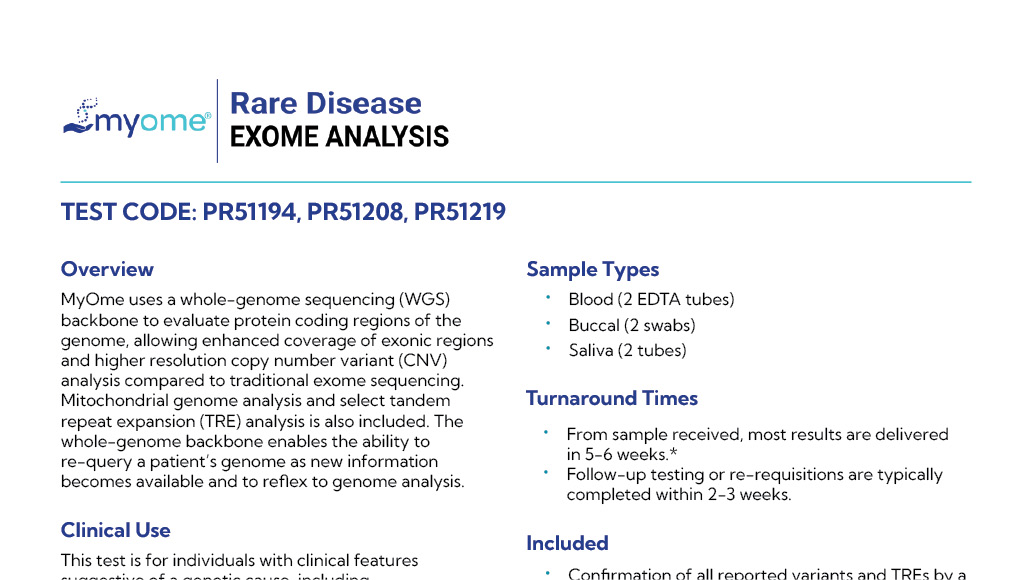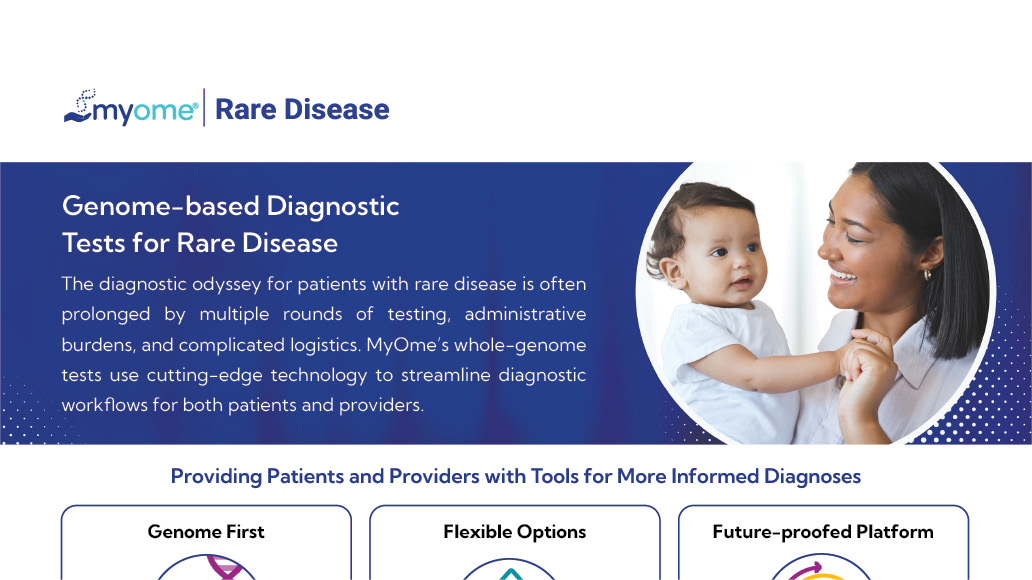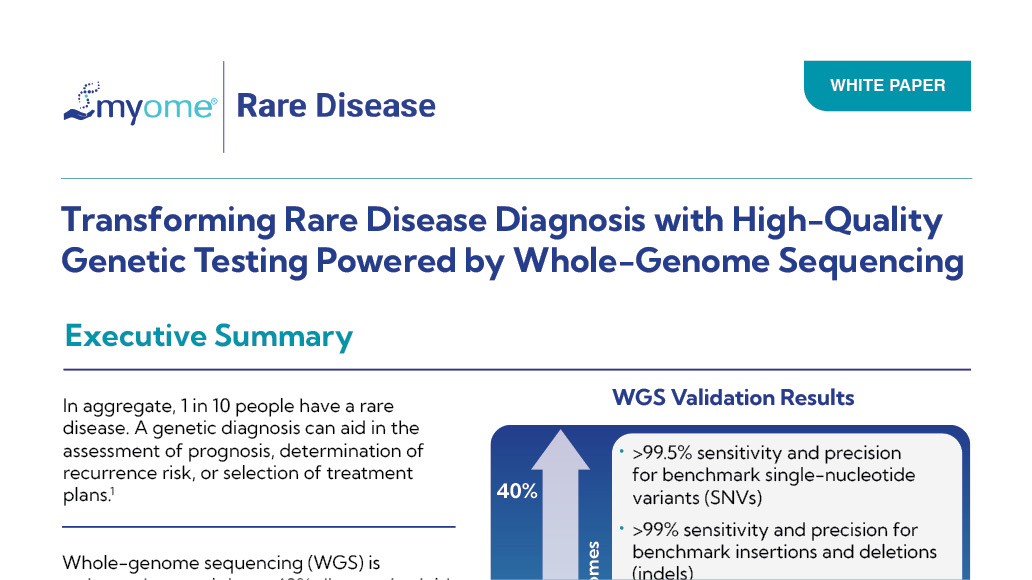Rare Disease Exome Analysis
What is our Exome test?
Our Exome test analyzes the protein-coding regions of the genome to identify variants that may explain the patient's reported symptoms or phenotype.


Advanced Exome Analysis with Enhanced CNV Detection
Our exome test provides enhanced coverage of critical regions that standard exomes might miss, increased detection sensitivity for copy number variants, and cost-effective flexibility to expand analysis beyond the exome without additional sequencing. Certain mitochondrial variants and tandem repeat expansions (TRE) are also included. With future-proof data that can be reanalyzed as new discoveries emerge—without requiring a new sample—our advanced technology delivers more complete results, greater diagnostic yield, and superior long-term value, all from a single sample.
Testing can be ordered as proband only or include up to two first-degree relatives, duo or trio analysis. When family samples are included, patient and familial samples are analyzed together, improving variant interpretation and increasing the likelihood of identifying a disease-causing variant.


Exome testing is recommended as a first line test for the following indications:
- Multiple congenital anomalies (MCA)1
- Developmental delay (DD)1
- Intellectual disability (ID)1
- Epilepsy2
Exome testing can also be considered for those with:
- Broad Differential Diagnosis
- Previous genetic testing uninformative
- Suspected genetic condition with genetic heterogeneity
- Manickam, Kandamurugu, et al. "Exome and genome sequencing for pediatric patients with congenital anomalies or intellectual disability: an evidence-based clinical guideline of the American College of Medical Genetics and Genomics (ACMG)." Genetics in Medicine 23.11 (2021): 2029-2037.
- Smith, Lacey, et al. "Genetic testing and counseling for the unexplained epilepsies: an evidence‐based practice guideline of the National Society of Genetic Counselors." Journal of Genetic Counseling 32.2 (2023): 266-280.
Test Type and Code
PR51017
Exome Analysis, Proband
PR51025
Exome Analysis, Duo
PR51030
Exome Analysis, Trio
Turn Around Times
From initial sample received, approximately 5 to 6 weeks*
Acceptable Sample Types
- Blood
- Buccal
- Saliva
Acceptable Billing Types
- Insurance Coverage
- Institutional
- Self-Pay
- Financial Assistance (such as interest-free payment plans, income and family based financial assistance, and prompt-pay discounts if available)
Reanalysis Policy
One time at no charge (starting one year after the initial order)
CPT Codes
81415 (proband)**
81416 (per family member)**
Includes
- Comprehensive report of any variants known to be or possibly associated with reported phenotype, including VUS
- Mitochondrial and TRE Analysis
- Confirmation of all reported variants by a secondary technology if warranted
Optional
- ACMG Secondary Findings for proband and parents (separate reports for each member)
- Genetic counseling
Interpreting Rare Disease Exome results


Order an Exome test
We make it easy to order MyOme's Rare Disease Exome Analysis. Talk to your healthcare provider to learn more and start diagnostic testing today.




